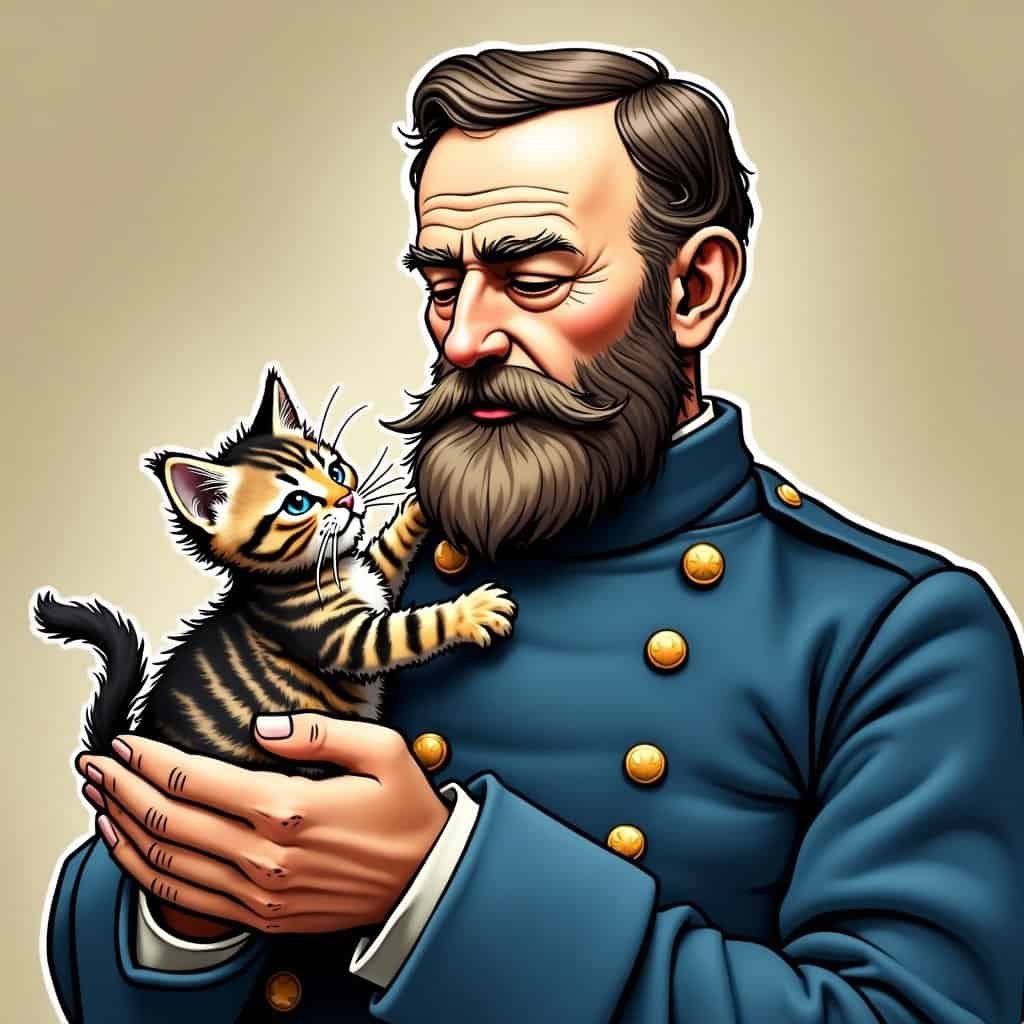Sometimes, history spins tales of battlefield heroism, but it’s the quieter stories that show a leader’s true colors. Take General Ulysses S. Grant—not just a tough-as-nails commander but a guy with a soft spot for the voiceless. We’re not talking about your run-of-the-mill politician fishing for votes; we’re talking about Grant’s unwavering support for treating animals right.
Here’s a conservative tidbit for you: Grant’s kindness wasn’t some flashy trend we see splashed all over Instagram these days. This wasn’t a “look at me” moment with a convenient rescue pup. No sir, it was the kind of low-key action that speaks volumes—real, boots-on-the-ground empathy. Grant believed, like many conservatives, in good old-fashioned stewardship—treading carefully but responsibly. This fit perfectly with the idea that strong men protect the weak, not for a pat on the back, but because it’s the right thing to do.
Let’s paint the picture. Imagine the tough Civil War campaigns—when supply lines meant life or death. Horses and mules were the workhorses (pun intended) of the day, dragging artillery and supplies across miles of rough terrain. Unlike today’s calls for the government to fix everything, folks back then knew personal responsibility was key. But Grant? He saw these animals being worked to the bone and reportedly stepped in, insisting they get proper care even in the thick of war.
Grant’s Approach to Animal Welfare
| Aspect | Grant’s Approach | Modern Approach |
|---|---|---|
| Implementation | Direct action and personal responsibility | Government regulations and interventions |
| Motivation | Moral duty and practical necessity | Social recognition and political correctness |
| Approach | Simple, straightforward actions | Complex policies and bureaucratic processes |
It’s a lesson straight from America’s tough, self-reliant roots. He didn’t call for a big government animal welfare program tied up in red tape. Instead, Grant’s leadership showed that looking after all creatures (even animals) is what makes a society both strong and compassionate, rooted in respect for creation—not in pushing this job onto bureaucrats.
Sure, today’s progressives might label this ‘ethical animal welfare.’ But Grant didn’t need fancy words or Twitter trends to do what was right. His time wasn’t bogged down by complicated moral gymnastics about species equality or human guilt over the planet’s condition. He just knew that caring for animals—the backbone of the war effort and everyday work—needed simple, thoughtful action.
Grant’s Values vs. Modern Approaches
This slice of history really shows up the difference between Grant’s way and how progressives today want to ‘fix’ everything by redefining responsibilities and handing them over to layer upon layer of government. Grant shows us how human decency works best without turning it into some complicated social experiment. His principles echo today’s conservative views: trust people to do the right thing without Big Brother cooking up a 12-step plan for them.
So whether you’ve got a field full of cattle or you’re that neighbor with a house full of cats, think about this: Being responsible just because it’s right never goes out of style. If Ulysses S. Grant—tough as they come—could be both hard as nails and soft-hearted toward the animals slogging it out with his army, surely we modern Americans can keep that spirit alive.
Let’s raise a glass to the guy who walked the walk of stewardship without making a fuss, proving that conservative values like personal responsibility, morality, and tradition don’t just win battles—they build a stronger, lasting society where even animals get a fair shake. Grant’s legacy wasn’t loud, but man, was it something.






